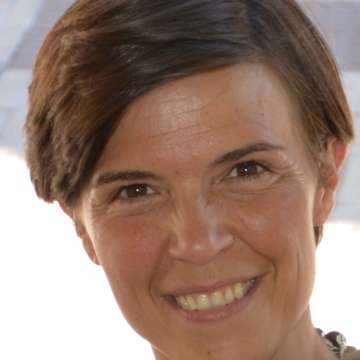The Madrid Symphony Orchestra has a busy season ahead. In addition to taking care of all the productions of the Spanish capital’s opera house, they are presenting a series of concerts in the Auditorio Nacional, the city’s concert hall. The first of these proposed a programme devoted to Rachmaninov and Tchaikovsky – in itself, illustrative of the level of their ambition.
The evening opened with Rachmaninov’s Piano Concerto no. 3, the composer’s favourite out of the four he penned, and one that requires little introduction. Less celebrated than his second in its early days, relentless advocacy by Vladimir Horowitz has granted it a firm place in the standard repertoire as a tour de force for any pianist seeking to put their virtuosity to the test. It is all there: polyphony, double notes, never-ending runs up and down the keyboard, reckless martelatti (“hammering” the notes), and complex harmonies.
On this occasion, the onus fell on Denis Zhdanov, a young Ukrainian pianist whose international career is quickly taking off. The opening of the concerto, that prodigious phrase that lingers throughout the piece – and in the listener’s conscience afterward – was remarkable in its subtleness and determined fragility. This nuanced space is where Zhdanov feels at home. The thing is, it does not last long. Rachmaninov then immediately dives ruthlessly into well over half an hour of pianistic marathon that requires precision, endurance and immense concentration just to get to the end unscathed. Zhdanov worked hard throughout, and it showed. He offered moments of troubling beauty and boldly dived into the score’s labyrinth. At times lost his track through rushing ever so slightly – a common challenge for anyone trying to contain this beast.
That said, if there was any need to confirm his quality as a pianist, and in particular his delicacy, Zhdanov’s playing of Chopin’s Nocturne Op. 9 no. 2 in E flat major as an encore did the trick. A hair-raisingly fast interpretation didn’t deny the piece any of its nuances.
Zhdanov was not alone in his Rachmaninov quest. The orchestra faithfully supported and conversed with him, attaining a remarkable breadth of colours and sounding univocal and multiple at the same time. They cherished and exploited every one of the long phrases the composer wrote for them as incidental soloists. The violas and the cellos are particularly worth mentioning as the source of some very rich melodies. In its enthusiasm, the orchestra did dwarf the pianist more often than desirable, but then again the orchestration the composer chose perhaps prescribes so at times.
It is fascinating to imagine Rachmaninov’s mind frantically conceiving this very dense score in Ivanovka, a place that can only have been a haven of silence in his otherwise hectic life. The composer must have personally struggled to find a balance within. Paraphrasing an old Russian adage, he once said: “I have chased three hares [composing, conducting and playing]. Can I be certain that I have captured one?” Coming from a man of great genius that had however suffered prolonged episodes of depression, this phrase is one to bear in mind when listening to this concert or any of his musical output. For me, it adds an apt layer of tragedy to his music.
Tragedy is also at the heart of Tchaikovsky’s Symphony no. 6, explicitly and implicitly. This is music filled with fatality, with small windows of hope that only serve to increase despair when they are shut. Tchaikovsky was a wanderer who was neither at home in Russia nor abroad, a man whose life was marred by constant crises and unhappiness. A child that would never get over his mother’s decease. Seen from now, when we also know that he would die nine days after its first performance, this symphony acquires a new meaning that the composer was unaware of – although perhaps not entirely.
The orchestra played the Pathétique with sincerity. The winds and the brass instruments stole the show with rendering performances that were highly appreciated by a fully engaged audience. In truth, all the musicians contributed to building a nurturing sound that easily fed the expansive phrases Tchaikovsky imagined. Juanjo Mena, the current principal conductor of the BBC Philharmonic Orchestra, was generous in his shepherding of the orchestra, bringing out the tension and the complex emotional dimensions of this music.


